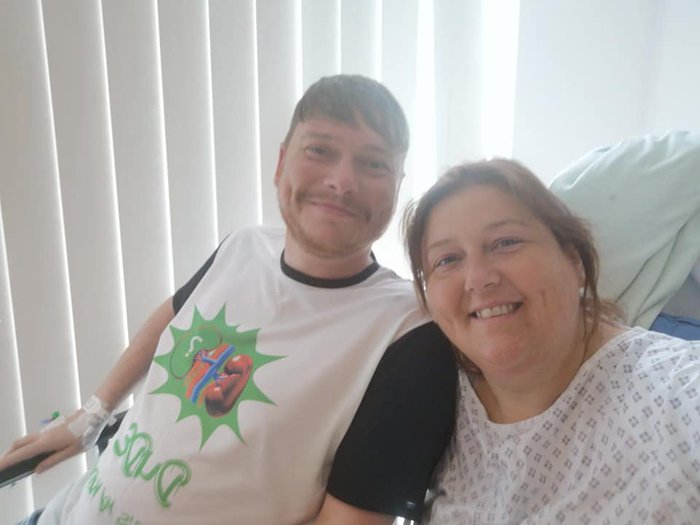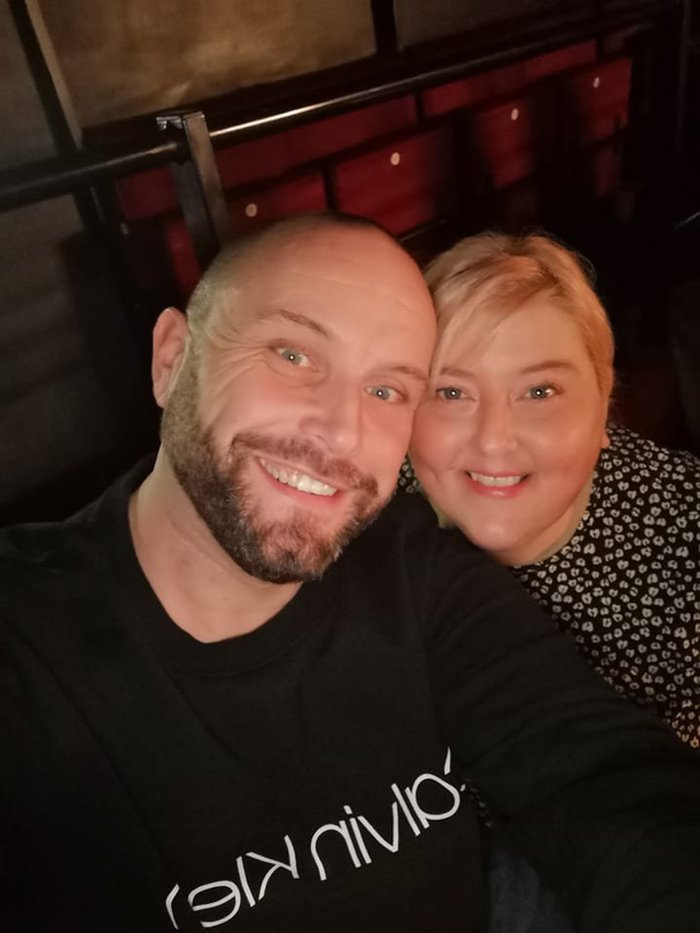"The diagnosis of kidney disease often feels like a life sentence. A successful transplant is life changing, but the journey through recovery is tough, both mentally and physically. My experience of the ERAS project empowered me to take control, helping to reduce the risk of post-surgery complications and my length of hospital stay.
“Receiving a diagnosis of chronic kidney disease (CKD) at the tender age of 13 was heart breaking. I had no symptoms and despite preventive medications, it was a crushing blow to find out years later that pyelonephritis was well underway.
“My mental health was affected; I felt out of control and vulnerable. I had to leave my job, which was difficult because we were struggling financially and still are. I was terrified and suffered from anxiety attacks. Complying with fluid restrictions, the new diet, and medications was overwhelming. It affected our lives, both financially and structurally. Our routine was new, we were living on one income, and I was always tired. But I was blessed to have a supporting husband and two beautiful children, who I felt grew up prematurely because of my illness."
First transplant
“In May 2013, my mum donated her kidney to me. During the recovery. I lay in bed overthinking everything: What are the doctors thinking? Is everything ok? Are my results normal?
“I was constantly anxious about not knowing what was going on and didn’t feel confident to ask questions. Recovery was still quite antiquated and bed rest was deemed appropriate.
“Day four post-transplant, I became unwell and felt pain when passing urine. My antibodies had surged due to an undetected urine infection. Despite various treatments the transplant failed, and three days later the kidney was removed. The journey back to dialysis the next day was the worst experience of my life. The weight of the transplant failing after everything my mum had done was distressing.
“I went home, my body was weak, my muscles were depleted, and I felt out of control and hopeless. The following weeks at home were a blur, I was shaking and dragging myself up and down the stairs to increase my mobility."
Home dialysis
“I started home haemodialysis and my dining room was converted into a hospital room with machines and equipment. I dialysed during the time my children were at school. I felt they were shielded from the treatment despite the fact it was at home.
“Seven years of dialysis eventually took a toll on my health. This time, my cousin Christopher offered to donate his kidney. After several setbacks due to Covid-19, we finally got the date for the operation in June 2021."

"The ERAS booklet – my recovery bible"
"Before the operation, I received a letter containing The Enhanced Recovery After Surgery (ERAS) booklet, describing a new process that offered a faster recovery. I was excited about the opportunity to take control of my journey and it gave me something to focus on.
"I got a phone call from Carrie, the lead nurse for ERAS. She explained the new process allowed the patient to be in control of their recovery.
"The booklet contained information on what to expect from day zero onwards, monitoring my fluid balance and meeting daily targets for walking and sitting. It also included a plan of what the team were aiming for. My mind was at ease.
"At the hospital, it was great to have the ERAS team on the ward. The doctors told me what I needed to know, but the ERAS team provided in-depth explanations and implemented this into my daily activities.
"The communication was great. I was self-medicating with supervision, they checked my medications, observations, and urine output. I felt like part of the team.
“I understood my care. If something didn’t happen according to the booklet, or my ‘recovery bible’ as I called it, I felt confident to ask questions. The physiotherapists were also brilliant. They were very knowledgeable and made sure I didn’t feel pressured. Every target I met was a small victory and one step closer to home.
“I was discharged to go home on day five. I felt strong and confident and mentally ready to continue my recovery at home using the tools I had been given by the ERAS team.
"The ERAS process is by far the best advance in hospital care I have seen. It is patient focused, and as a patient, it gave me back some control over my mind and my body.
“The ERAS booklet provided a coping mechanism, a focus, and an action plan. Some of the tools in it I will use for life. I believe that health and recovery are partly due to your state of mind and this new process revolutionises the relationship between medical staff and patients. It is brilliant and I believe it has saved me weeks, maybe months of recovery time.
“After a failed transplant, dialysis and many surgeries and illnesses along the way, I often felt out of control and defeated, even useless sometimes. The ERAS programme motivated me to do my bit to make sure I was giving this kidney the best possible chance.
“I no longer feel defeated, I feel proud to have played a part in my recovery. I now look forward to exciting times, new memories, more free time, and most importantly good health."
